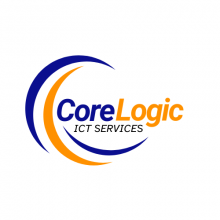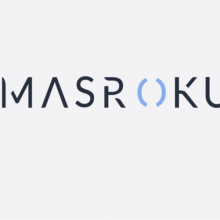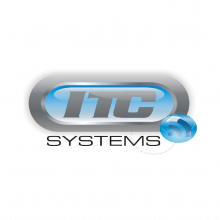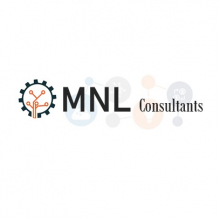
There are 25 Companies in South Africa
that provide Hardware Services!
The level of IT spending in South Africa is forecast to increase in 2025 at a higher pace than the economy did in 2020. Although the general state of the economy has a direct impact on the growth of the ICT sector, its customers continue to invest in technology, and the sector consistently shows a growth rate that is higher than GDP.
Discover Top IT Companies in South Africa specialized in Hardware and other related services. Find the best IT service providers for your projects.
Hardware service is an aspect of IT management that specifically deals with the physical components of information technology. The process encompasses hardware acquisition, continuous maintenance throughout its lifespan, and responsible disposal of outdated parts. Expert hardware asset managers collaborate with various departments and stakeholders across all levels within an organization. According to recent statistics, up to 30% of the total IT budget is spent on hardware, software, and related maintenance and support expenses.
Handpicked companies • No obligation to hire • 100% risk-free
Featured Companies in South Africa
This month, the following Hardware companies managed to provide an outstanding service and support. It's worth taking a look.
Multi-award winning software development company in Pretoria, providing world-class software and mobile development services.
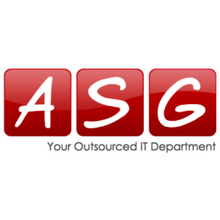
ASG IT Support Services Verified Company
Sandton, South Africa Head office in: South Africa
Since 1988, ASG has been providing professional flat-rate IT support services to businesses in South Africa. Essentially, your all-in-one IT provider.

PRETO BUSINESS Corp. Verified Company
Johannesburg, South Africa Head office in: United States
PRETO Business Corp.—a Public Affairs&Growth Hacking agency that employs a comprehensive approach to communication. VISION: WE RISE BY LIFTING OTHERS
Explore Top Hardware Companies in South Africa

Innov8ive Software Solutions (Pty) Ltd Verified Company
Sandton, South Africa Head office in: South Africa
We are in this business to help other small businesses grow and move forward. Its as simple as that. There is no catch, no gimmick, just experience.
Services:
Leading Website Design and Graphic Design
Services:

SevenC Managed IT Services Verified Company
Johannesburg, South Africa Head office in: South Africa
SevenC was founded in 1998 as a specialist IT Strategy and IT Support Services company in Sandton - Johannesburg, South Africa.
Services:
Get Inspired...
Established in 1999, We provide complete IT Services, Support and Sales to Micro, Small & Medium Enterprise Businesses and Companies in South Africa.
Services:
Core Logic ICT delivers smart IT solutions/support, development, and digital services, engineered to keep your business connected & competitive.
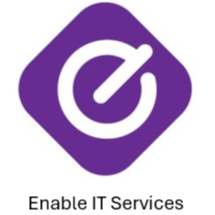
Enable It Services Verified Company
Midrand, South Africa Head office in: Australia
Enable IT Services, based in Perth, provides managed IT services, cybersecurity, and cloud integration for reliable IT infrastructures.
Services:
TechTech provides managed IT, cloud & compliance solutions for businesses in Pretoria & JHB, ensuring secure growth.
Services:
Rysen Group is a dynamic IT company and trusted MSP delivering tailored tech solutions and support to businesses.
IT Corporation delivers secure, scalable managed IT services including Microsoft 365, cybersecurity, cloud solutions and proactive support.
Services:
Empowering Business Growth Through Expert Managed Services, we Safeguard your Business
Services:

MepTech Advertising Verified Company
Western Cape, South Africa Head office in: Zimbabwe
We are a web development ,social media marketing, Graphics design and an I.T company providing tailored solution for your brand and your l.T services
Services:
Unlimited 24/7 support at a fixed monthly cost. A trusted IT company in Durban. Reliable managed services & expert IT solutions for local businesses.
Services:

Johannesburg, South Africa Head office in: South Africa
We help small to medium-sized businesses implement and manage technology that drives digital transformation and moves people and business forward.

Cape Town, South Africa Head office in: South Africa
Westech - IT Support Company that offers a selection of on-site & off-site or outsourced IT Support & Maintenance plans. Software, Hardware & more
Carver Technology offers tailored IT solutions that boost efficiency and security, empowering your business to thrive in a digital world.
Services:
Masroku emerges as your strategic partner, offering tailored ICT solutions meticulously crafted to adapt seamlessly to the evolving needs.

Da Vinci Forensics & Cybersecurity Verified Company
Mossel Bay, South Africa Head office in: South Africa
Penetration Testing, Vulnerability Scans, OSINT training, Digital Forensics, Investigations, Website Scanning, Backup, Email Protection, Anti-Virus
IT Support, Connectivity, Voice, Network infrastructure ,Hosting, Web Design, Software and hardware, Wi-Fi
Services:
Company Hera Group, a prominent cybersecurity company with its roots in South Africa. With an established presence in multiple African nations
MNL Consultants is a Pietermaritzburg based software development company specializing in website development, web design.
- 1
- 2
Filter Hardware Companies in South Africa by Cities
Find the right tech company near you or from a specific city. Some of the best companies might be located in smaller cities.
Find more Hardware companies around the world
TechBehemoths is the world's most advanced and user-friendly platform to match IT Companies with real clients without hustle.
South African IT Industry: General Country Profile
The level of IT spending in South Africa is forecast to increase in 2025 at a higher pace than the economy did in 2020. Although the general state of the economy has a direct impact on the growth of the ICT sector, its customers continue to invest in technology, and the sector consistently shows a growth rate that is higher than GDP.
Cybersecurity is a high priority, with global statistics indicating that South Africa is the third most targeted country in the world for cyberattacks. Alleged IT-related procurement irregularities revealed through a number of commissions of inquiry and investigations continue to affect the reputation of some industry players. It is estimated that there are over 13,000 IT companies and over 3,000 electronics companies in South Africa, with the vast majority being small companies employing less than 50 people, according to Globe-News Wire.
Why Work With a South African IT Company
New and growing trends will provide significant opportunities for small and large players in the sector. These include growth in telecommunications, data center revenues and artificial intelligence, and the internet of things, where start-ups are expected to lead innovation. Digital transformation to improve customer experiences and online purchasing, fintech banking, blockchain, augmented reality, and virtual reality are some of the technologies that will disrupt the South African ICT industry in 2019. Improvements continue in 2025, with more than 120 million cellular mobile connections equal to 193% of the total population.
The industry is characterized by consolidation and convergence of companies within the IT sector, and between companies in the IT and telecommunications sectors.
What You Should Be Aware of When Working With South-African IT Companies
The growth projections of the IT market could be higher were it not for certain factors that seem to constrain it, including the cost sensitivity of customers, low expenditure by the public sector, market maturity, and bigger companies sourcing directly from the original equipment manufacturers.
IT market growth is also impeded by bigger companies that bypass IT vendors and go directly to OEMs for products and services. This impacts negatively on smaller companies that provide niche services within the broader IT sector.
How Reliable Are South African IT Companies
Despite the challenges facing the IT sector, its products and services have become part and parcel of everyday business and social life. The fast pace of innovation helps the sector to remain relevant while shaping the future of business and society.
How Does the South-African IT Industry Relate to the Neighboring Countries?
The South African IT market, comprising hardware, packaged software, and IT services submarkets, is regarded as one of the most developed and sophisticated within the continent. South African IT companies rank among world leaders in areas such as mobile software, electronic banking services, pre-payment, revenue management, fraud prevention systems, and the manufacture of set-top boxes, according to a report provided by the South African Department of Communications.
What is Hardware and what are its benefits for your projects?
Hardware service is an aspect of IT management that specifically deals with the physical components of information technology. The process encompasses hardware acquisition, continuous maintenance throughout its lifespan, and responsible disposal of outdated parts. Expert hardware asset managers collaborate with various departments and stakeholders across all levels within an organization. According to recent statistics, up to 30% of the total IT budget is spent on hardware, software, and related maintenance and support expenses.
Primary Categories of Hardware Asset
Hardware asset are generally grouped into four primary categories:
- End-user devices - Employees use a variety of devices in their everyday work, including computers, smartphones, tablets, SIM cards, and other similar gadgets.
- Network and telecom hardware serve as support equipment for facilitating both digital and analogue communication. This category includes various devices such as routers, load balancers, switches, as well as telephone and video conferencing systems.
- Data-center equipment are hardware that enables the effective functioning of data centers. This includes servers, utilities, and security devices.
- Peripherals are essential equipment that provides support in modern office environments. They come in various forms such as scanners, printers, monitors, keyboards, headsets, projectors, and even cables and adaptors.
What are the Benefits of Hardware Services
Business hardware may not always appear to be a secure investment. It tends to lose value rapidly and require regular maintenance and occasional repairs. However, implementing effective hardware asset management can help reduce these downsides.
The advantages of hardware services include the following:
-
Improved loss prevention - Loss prevention is enhanced through improved accuracy in hardware catalogues. These catalogues enable effective tracking of equipment, identification of missing parts, and mitigation of risks. Additionally, asset tagging, ownership records, and location tracking facilitate the identification of idle assets, ultimately reducing theft risk.
-
Enhanced productivity - Implementing a strategy for managing hardware assets, employees are able to efficiently handle equipment, prevent inefficient processes, and automate procedures. This ensures accurate inventory and distribution while also preventing asset issues before they arise.
-
Optimized usage - Effective management practices for hardware and well-structured maintenance schedules ensure the proper utilization of company equipment. Also, accurate asset inventories help prevent unnecessary spending, ultimately increasing the value of hardware investments.
-
Increased security and compliance - Managing hardware assets offers a thorough inventory of all hardware assets and assists security teams in securing hidden assets, spotting vulnerabilities, and verifying policy compliance.
-
More-efficient lifecycle management - Businesses benefit from HAM's comprehensive asset lifecycle control, which facilitates informed decision-making for asset managers regarding vendor contracts, servicing options, and replacements.
- Cost savings - Here are a few ways that managing hardware assets can help your company save money:
- Lower maintenance expenses;
- Hardware budgets that are more precise;
- Minimal hand work;
- Less hardware expenditure;
- More effective disposal methods.
When organizations invest in effective hardware asset management, they gain lots of advantages. These benefits include saving time and money, as top-quality HAM systems and strategies quickly prove their worth.
Are you in search of a hardware asset service provider? Your search ends here with TechBehemoths! Our platform has a vast selection of over 323 worldwide companies that provide effective hardware asset management.
To make your decision easier you can use smart filters based on location, price, and reviews. In case you require additional help, simply submit your project and our team will assist you in finding the ideal service provider for your specific needs.




